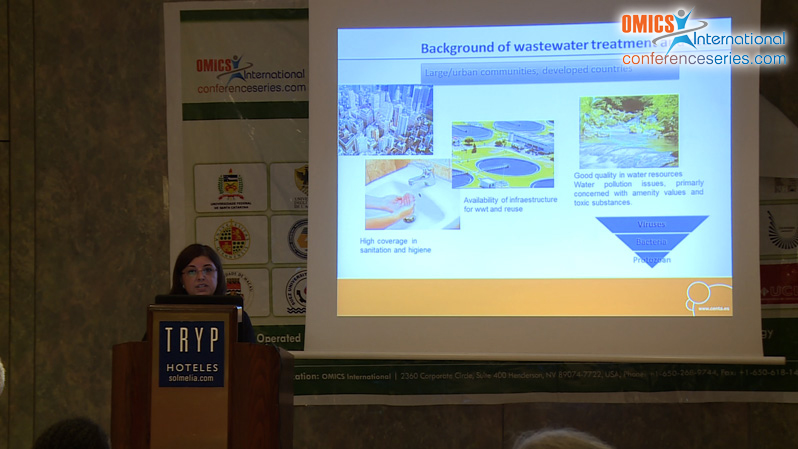
Isabel MartÃn
Foundation Center for New Water Technologies (CENTA), Spain
Title: Sustainable water reuse. The case of rural areas and small settlements
Biography
Biography: Isabel MartÃn
Abstract
The manifold pressures of climate change, population growth, the changing demands on energy, the growth in demand for high quality water in urban and agricultural areas and the unequal distribution of water resources are putting unprecedented and increasing pressure on finite freshwater resources. It is expected that in 2025, 1,800 million people living in countries or regions with absolute water scarcity and two thirds of the world population could do so under conditions of water stress. The use of treated wastewater, especially in applications that are not required to meet drinking water quality, is widely recognized as a proven solution for water scarcity, an alternative recourse from both a drought and environmental protection viewpoint. As a result, water reclamation and reuse is being incorporated into sustainable development, climate change adaptation and Integrated Water Resources Management strategies. To achieve sustainability with small-scale applications, low cost and simple operational wastewater treatment is essential. This increasingly demands the use of so-called ‘non-conventional’ or ‘low-cost’ wastewater treatment technologies, due in great part to the potential for debugging in these areas. Likewise, in the context of wastewater reuse, the use of low-cost water reclamation technologies is also necessary. The Foundation CENTA has been working for over 20 years on sustainable technologies for wastewater treatment and reuse in small communities and areas with low income. Proof of this are the many projects carried out both in Spain and in many countries in Africa, Asia and Latin America. These projects, as well as lessons learned and some recommendations will be presented at the Recycling Expo 2015.

